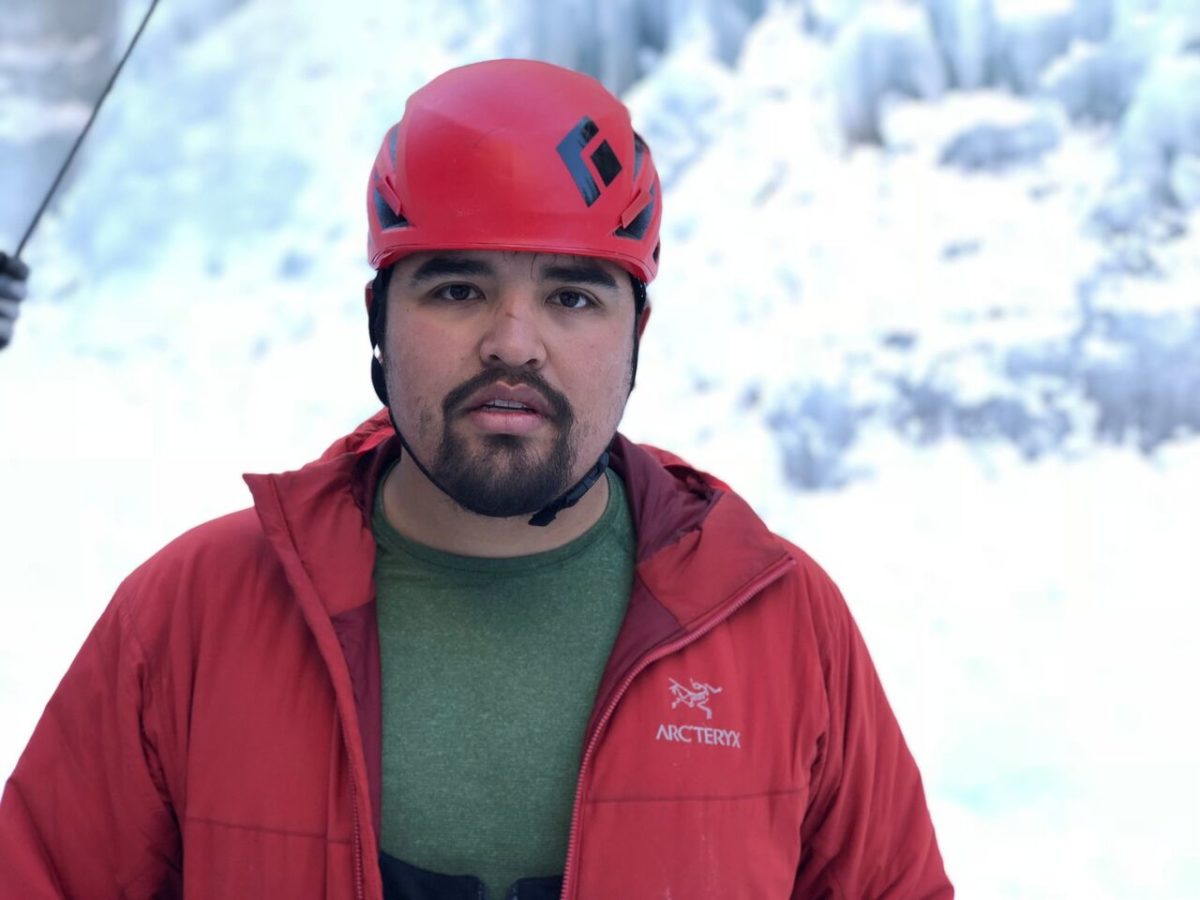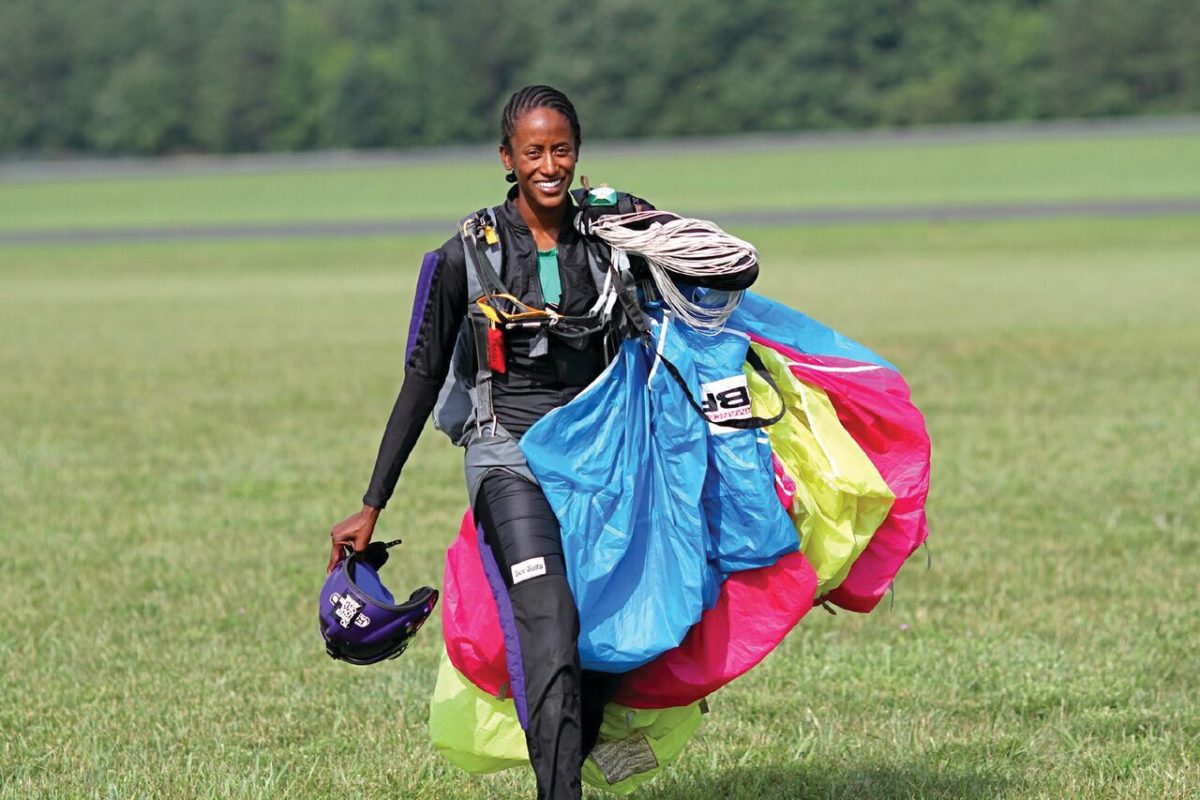For many, the National Parks system is a clear representation of the freedoms promised to Americans from birth. For Here Magazine’s sixth issue, we explored how, for many Americans, access to these outdoor spaces—while technically public—is muddied by barriers, whether physical, cerebral, or emotional.
Symbolic of the democracy in which citizens are all meant to have a stake, the 52.2 million acres that make up the 58 parks from Hawaii to Maine offer an abundance of gifts—and require something, however small, in return. In practice, the word “all” has been continually squeezed of its juice, leaving behind a pulpy mass of those at the top of the social food chain, privileged—by the color of their skin, the shape and mobility of their body, and the anatomy beneath their Under Armour compression shorts—to feel entitled to the country’s diverse public lands.
From Jim Crow-era laws banning black people from public pools and beaches to the seizure and redistribution of Native lands as recent as the 1960s, the legacy of exclusion from shared outdoor spaces is a tension still present for many. Rarely are people of marginalized identities represented as integral parts of mainstream outdoor communities—a Google search of relevant terms such as “hiker” and “outdoorsy” produces an endless scroll of beards and alabaster skin. But this hardly means that the actual outdoor community is homogenous; the pool of athletes and outdoor enthusiasts in the U.S. is as diverse as the National Park System itself.
At the forefront of the conversation about inclusion and access to the outdoors are people such as journalist James Mills, Melanin Basecamp founder Danielle Williams, creator and owner of Natives Outdoors Len Necefer, and Summer, the director of Fat Girls Hiking. These leaders are among those working to ensure that the parks are protected and the freedom promised to the American people—that which is embedded in the land—is actualized.

Summer, Founder of Fat Girls Hiking
Long before she founded Fat Girls Hiking, Summer (who, to defend against internet abuse, prefers not to share her last name) used to go camping with her family. “That was the cheap way to travel because my mom was a single parent and we couldn’t all afford to fly,” she says. It wasn’t until she moved to Portland as an adult and started dating a woman who would sucker her into hiking that she began hitting the trails with the regularity that she does now. “At first it was just like, why do people like this? I didn’t understand the appeal of walking and being sweaty.”
While hiking together, the couple jokingly sang songs about being two “fat girls hiking”—a name that eventually stuck. When Summer began using the hashtag on Instagram, others followed suit in numbers high enough to convince her that this was a community in need of a leader. “At the time, there were very few women-specific outdoor accounts [on Insta- gram], and the women who were on these accounts didn’t look like me,” she says. “They were very homogenous, thin, able-bodied, white people— which is fine, I’m not bagging on that—it just wasn’t who I am or who my friends are. I wanted to see something different.” From there, Summer began leading group hikes for people who felt unable to hike on their own—a hobby that blossomed into the Fat Girls Hiking of today, which now has chapters in Portland, Seattle, Knoxville, Minneapolis, and Los Angeles.

Summer’s work is about providing an alternative to an athletic world that, consciously or unconsciously, excludes people who fail to fit a narrow understanding of what it means to be “out- doorsy.” In doing so, she also leads hikes that are wheel- chair-accessible.
“When we think of the outdoors, we have a very specific idea of what it is to be a ‘hiker’—but we can change that narrative,” Summer says. “A lot of people in my community require a lot of patience; they need someone who’s going to stay with them, someone who’s not going to leave them behind. I want people to feel like it’s okay to struggle a bit, and to know that I’m going to stand there with them while they catch their breath, for as long as they need me to.”
She summarizes: “We don’t have to buy the idea that you have to do a certain thing or look a certain way in order to be an outdoorsy person. Freedom means being able to be who you are without fear.”
Len Necefer, Founder of Natives Outdoors
As a member of the Navajo Nation, entrepreneur and activist Len Necefer has never been able to overlook the lack of Native representation in outdoor spaces, retailers, and even environmentalist groups. “Native folks have been outdoors since time immemorial; however, our presence in the outdoor industry is severely lacking,” he says. “Access and opportunity to build the skills are missing, but you can’t rely on the industry to change itself and fill in these gaps.” Instead, Necefer took things into his own hands in 2017 when he found- ed Natives Outdoors, a brand of soft goods and outdoor apparel designed by Native artists. The organization also donates two percent of its sales to Native-run nonprofits that benefit efforts such as outdoor recreation, language and culture revitalization, and environmental issues.
Growing up, Necefer’s experiences in nature were central to his understanding of himself and his community. “The outdoors was my first classroom,” he says. “Ceremonies and traditions were my first [introduction], and then it was learning about my own personal strength and abilities in the mountains. Outside is where I learned about my identity as a Navajo person.” To him, the promise of freedom inherent in the outdoors is only valid when we consider and uplift Native perspectives—beginning with basics like respecting treaties and tribal sovereignty, and adopting stronger environmental protections.

In his advocacy, Necefer points out that portions of land incorporated in the National Park System were actually under Native possession as late as the 1960s, rendering the trauma of these removals still fresh—further illustrating the complex relationship between Native and outdoor communities. “The relationship [between the two] hasn’t always been one of respect or reciprocity,” he says. “However, it appears that newer generations are beginning to turn the corner on this. The outdoor community has an immense opportunity to learn the indigenous history that isn’t taught in schools. That’s a starting point to building a more productive and respectful relationship with Native people.”
Danielle Williams, Founder of Melanin Base Camp
Danielle Williams hopes for a future in which her job is no longer necessary.
Her introduction to adventure sports came while serving in the U.S. military, when she was heavily involved in camping and skydiving. In 2014, she and five other African American skydivers formed the organization. Team Blackstar to increase diversity in the sport; after that, she grew curious about the social makeup of other adventure sports.
In an attempt to find similar groups, she recalls endlessly scrolling through social feeds, searching for faces like hers under nature- related tags, and struggling to find any. Seeing the need for unification, Williams first created the hashtag #diversifyoutdoors to connect marginalized communities and celebrate a shared love of the outdoors.

In 2016, she launched Melanin Base Camp, a platform on which members of ethnic minorities and queer groups involved in outdoor activities and adventure sports come together to discuss topics ranging from recent trips to diversity and accessibility.
Williams’s ultimate goal is to change the way people think about the outdoors, as well as eliminate the idea that only a specific type of person —one who is male, white, straight, able-bodied, and hypermasculine—can have a meaningful relationship with nature. She lists historical awareness, representation, and storytelling as three major contributors to the creation of a more diverse outdoor space.
“Getting more people to feel comfortable with telling different stories is a big goal of mine, and a big goal of Melanin Base Camp,” Williams says.

